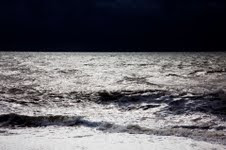Image copyright © Natasha Lythgoe - All rights reserved
Natasha Lythgoe "Opening"
Natasha Lythgoe is a young British photographer who has worked as a professional for the past 15 years and will have her first solo exhibition in Paris at Centre Iris beginning June 13 through September 15, 2012. Over the past 8 years she has had nearly 1000 students in her photography courses from those who are new to photography to more advanced students. She has a degree in fine art and is currently completing her MA in Photography.
So, if you are in Paris this week, you have an opportunity to meet this artist at the vernissage as she welcomes you at Centre Iris on rue Saint-Martin. Natasha and I have not met face-to-face but I am looking forward to the opportunity on my next visit to Paris. How I wish that I was in Paris to join Natasha and many of you for this opening event.
Tant pis pour moi.
Is it possible for a photograph to have an existence that generates a response, emotion or reflection of its own accord, rather than simply being a representation of elsewhere?
Imbued with Buddhist philosophies and practices, Natasha Lythgoe’s path has led her through spheres of dance and meditation. Through these practices, she explores re-embodiment, re-connection and the present moment.
Sensitive and sensual, viscerally grounded and at the same time transcendent, Natasha Lythgoe invites us to look beyond the trail of photography, so that we not only contemplate that which we are shown, but also experience physiological and psychological responses, and therefore our own personal, intimate relationship to the world at this point in time. The photographs thereby provoke a return to self and to self-awareness. They speak to our eyes of course, but we can also appreciate the images with our ears, feel them in our stomach and through our skin. This visceral yet transcendent quality impels us to reject the notion of photography as merely a process of depiction, and search for meaning behind and between the photographs themselves.
Traditional ways of exhibiting images with ideas of completion and sequential order simply don’t fit in this context. To understand the work fully one needs to view each image as part of a whole: the constellation of images within which it is being presented. Each series of images is neither definitive nor frozen in a permanent sequence, and this freedom of movement, this fluidity, creates a sense of free association, of interchangeable patterns.
As a result, this body of images which at first glance appears disparate, in fact forms together images which present the possibility of a subject, above and beyond that which is represented, and even beyond that which is being photographed. Bearing in mind this move away from photography’s indexical relationship to the world, a particular object within each image is not the main focus of attention.
This distance from what appears to be the ‘subject of’ a particular image, forms part of a theory of non-representation.
Natasha Lythgoe’s photography also employs an intellectual approach which is related to Gilles Deleuze and Félix Guattari’s concept of ‘deterritorialization’. This concept when applied to art, at the very least, becomes an exploration of not reducing work to the categories which make it make sense.
In Natasha Lythgoe’s proposal, nothing is defined - unless it is our perception of life, of nature, of the infinitesimal vibrations that run through our world.
Centre Iris... pour la photographie
238, rue Saint-Martin
75003, Paris





0 comments:
Post a Comment